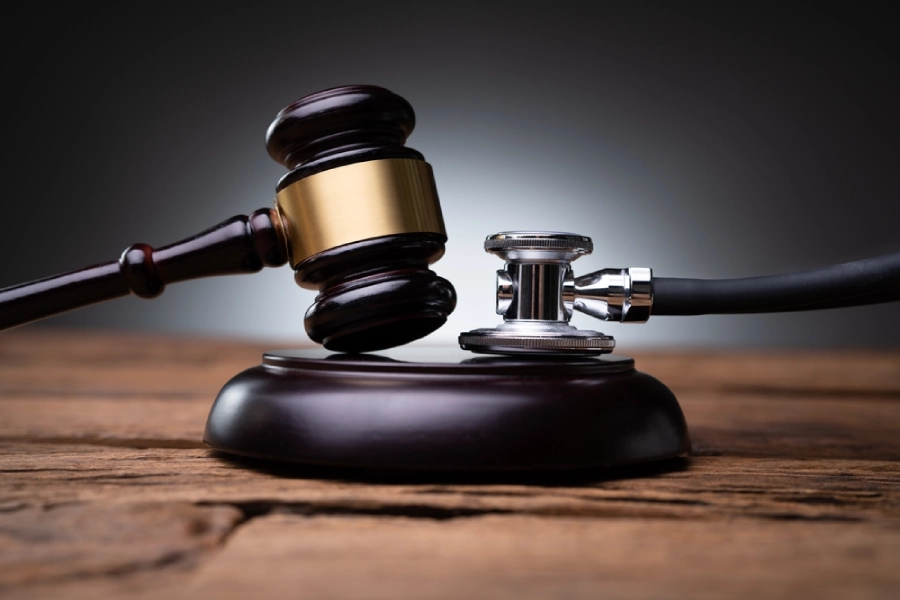A Power of Attorney (POA) is an essential legal document that enables someone, referred to as the principal, to grant authority to another individual, known as the agent or attorney-in-fact, to act on their behalf. This legal tool is crucial when the principal cannot manage their personal, medical, or financial matters due to various reasons, such as physical illness, mental incapacity, or absence.
The Power of Attorney form can cover a wide range of responsibilities depending on the type of POA created. It can give the agent broad or limited authority to make decisions related to health, finance, or legal matters on behalf of the principal. This flexibility makes POA forms an essential tool in estate planning, financial management, and healthcare decision-making.
Whether you are preparing for the future, managing temporary incapacity, or seeking a solution to manage your affairs when you’re unavailable, understanding the different types of POA forms and how to create one is crucial.
What Is a Power of Attorney?
A Power of Attorney (POA) is a written legal document that allows one person (the principal) to grant authority to another person (the agent or attorney-in-fact) to make decisions or take actions on the principal’s behalf. These actions can include managing financial affairs, making healthcare decisions, or representing the principal in legal matters.
The principal designates an agent, trusting that the agent will act in their best interest, or in accordance with the principal’s explicit instructions. The scope of the agent’s authority is defined by the POA document. It can range from granting broad authority to specific and limited powers.
The agent’s role may vary, and the principal should ensure that the powers granted align with their needs. Whether temporary or long-term, a POA is vital for ensuring that matters are handled according to the principal’s wishes, especially in the event of incapacity or absence.

Types of Power of Attorney Forms
There are several types of Power of Attorney (POA) forms, each serving specific purposes. Understanding the differences between these forms is essential to selecting the right one for your needs. Below are the most common types of POA forms:
1. General Power of Attorney (GPOA)
The General Power of Attorney (GPOA) grants broad authority to the agent to manage the principal’s legal, financial, and business affairs. This form allows the agent to act on the principal’s behalf in almost all matters, including property transactions, banking, and legal representation.
However, the general POA is limited in duration, meaning that it becomes invalid if the principal becomes incapacitated. It is designed for situations where the principal needs assistance in managing their day-to-day activities or when they are temporarily unavailable to act.
Features of GPOA:
-
Provides broad authority over financial, legal, and business matters.
-
Becomes ineffective if the principal is incapacitated.
-
Ideal for short-term needs where comprehensive authority is required.
When to Use:
-
Managing everyday financial decisions.
-
Handling legal matters on behalf of the principal.
-
Signing documents or making transactions during an absence.

2. Durable Power of Attorney (DPOA)
The Durable Power of Attorney is a unique form of POA that remains valid even if the principal becomes incapacitated. This feature is especially useful for those who want to ensure their financial and medical affairs are handled even if they are no longer able to make decisions for themselves due to illness or injury.
Unlike a general POA, the Durable Power of Attorney does not become void if the principal loses mental capacity. The authority granted through a DPOA can remain in effect until it is revoked or the principal dies.
Features of DPOA:
-
Remains valid even if the principal becomes incapacitated.
-
Often used for managing long-term affairs, such as healthcare and finances.
-
Can cover a broad range of responsibilities, including healthcare and legal matters.
When to Use:
-
Managing affairs when facing illness, aging, or incapacity.
-
Ensuring someone trustworthy can make decisions when you can’t.
3. Springing Power of Attorney
A Springing Power of Attorney is designed to activate only upon the occurrence of a specific event or condition, typically when the principal becomes incapacitated. This form of POA provides the principal with peace of mind, as it ensures that the agent can only act once the principal is no longer able to make decisions themselves.
For example, a Springing POA might activate only after a medical evaluation confirms that the principal is incapacitated. This ensures that the principal maintains control over their affairs until the condition occurs.
Features of Springing POA:
-
Activates only under specific circumstances.
-
Requires the agent to wait until a predefined event occurs before taking action.
-
Often used in cases where the principal is temporarily incapacitated or in health-related matters.
When to Use:
-
When you want to maintain control until a certain event or condition occurs.
-
Ideal for managing long-term illness or incapacity.
4. Limited Power of Attorney (LPOA)
A Limited Power of Attorney grants the agent authority to act on behalf of the principal for specific, limited tasks. The scope of the agent’s powers is clearly defined, and the authority granted is typically temporary or confined to specific activities, such as managing one particular financial account or overseeing a specific legal issue.
This form of POA is highly flexible, allowing the principal to delegate authority for one-time or short-term needs.
Features of LPOA:
-
Provides authority for specific tasks or activities.
-
Ideal for short-term needs, such as handling a real estate transaction.
-
Authority is limited to a specific event or duration.
When to Use:
-
Handling a one-time task or event, like selling property or managing a single financial matter.
-
Temporary delegation of specific authority during travel or absence.

5. Medical Power of Attorney (MPOA)
A Medical Power of Attorney allows the agent to make healthcare decisions on behalf of the principal if they are unable to do so themselves. This form is used when the principal faces medical situations where they cannot express their wishes regarding treatment.
In conjunction with a living will, a Medical POA ensures that medical decisions, including life-sustaining treatments, are made according to the principal’s preferences or best interests.
Features of MPOA:
-
Grants authority to make healthcare decisions.
-
Becomes active if the principal is incapacitated.
-
Can include specific medical instructions, such as end-of-life care or organ donation preferences.
When to Use:
-
When you want to ensure someone can make medical decisions on your behalf if you are unable to.
-
Ideal for individuals facing serious illnesses or preparing for future healthcare decisions.
How to Create a Power of Attorney Form
Creating a Power of Attorney form requires careful consideration and proper legal procedures. Here’s a step-by-step guide on how to create one:
Step 1: Determine the Type of POA
Choose the appropriate type of POA based on your needs. Whether it’s a General, Durable, Limited, or Medical POA, ensure that it matches the specific responsibilities you wish to delegate.
Step 2: Choose an Agent
Select someone trustworthy to act as your agent. This could be a family member, friend, or professional, depending on the level of responsibility you’re comfortable with.
Step 3: Draft the POA Document
You can create a POA using online templates or consult with a lawyer to ensure the document meets legal requirements. Make sure to specify the powers granted, any limitations, and the duration of the POA.
Step 4: Sign and Notarize the Document
The document must be signed by you in the presence of a notary public. In some jurisdictions, you may also need witnesses to sign the document.
Step 5: Distribute Copies
Once the document is signed and notarized, provide copies to your agent, healthcare providers, financial institutions, and any other relevant parties.

Why You Might Need a Power of Attorney
There are numerous situations in which having a Power of Attorney form is necessary. Whether for planning ahead or addressing immediate needs, a POA offers a practical solution in various scenarios. Below are some of the most common reasons why you might need a POA.
1. Managing Affairs During Incapacity
One of the most common reasons for needing a Power of Attorney is the possibility of incapacity. If you are incapacitated due to illness, injury, or mental disability, a POA ensures that someone you trust can make decisions on your behalf. A Durable Power of Attorney is particularly useful in this regard, as it remains effective even if you become mentally incompetent.
For example, if you’re in a car accident and unable to manage your finances, a Durable POA allows your agent to pay bills, manage investments, and make financial decisions in your absence.
2. Planning for Future Healthcare Decisions
A Medical Power of Attorney is crucial for ensuring that your healthcare decisions are made according to your preferences if you are unable to make them yourself. This document is particularly important if you have specific wishes regarding end-of-life care, life-support treatment, or organ donation. In such cases, the MPOA ensures your desires are respected.
By appointing a trusted agent to make healthcare decisions, you remove the burden from family members during a difficult time. This also prevents disagreements or confusion about the care you would want.
3. Handling Financial and Legal Affairs During an Absence
If you are going to be away for an extended period, a Limited Power of Attorney can ensure that someone you trust can handle your financial and legal affairs while you’re unavailable. For example, if you’re traveling abroad for several months, you might give a friend or relative the authority to manage certain accounts or sign documents on your behalf.
A Limited POA is particularly useful in cases where you need temporary assistance with specific matters, such as real estate transactions, business contracts, or tax filings.
4. Estate Planning and Preparing for the Future
As part of comprehensive estate planning, a Power of Attorney is often included to ensure that your affairs are managed in accordance with your wishes. This is particularly important if you are aging or dealing with chronic health issues. A POA can be used to appoint someone who will manage your finances, medical care, and legal matters in the event of your incapacity.
By establishing a POA, you are not only preparing for the future but also ensuring that your loved ones do not have to go through a lengthy and expensive legal process to gain access to your affairs.

Legal Considerations and Limitations
While Power of Attorney forms are incredibly useful, they are also subject to certain legal restrictions and limitations. Understanding these constraints is important to avoid misunderstandings and ensure that the POA serves its intended purpose.
1. Limitations on Powers
The Power of Attorney document outlines the specific powers granted to the agent. In some cases, the agent may be limited in terms of what they can do. For example, a Limited Power of Attorney only allows the agent to carry out a specific task or activity for a limited period.
If you wish to impose restrictions on the agent’s authority, it’s important to specify those restrictions clearly in the document. Otherwise, the agent may have broad powers over your affairs, which could lead to unintended consequences.
2. Revocation of Power of Attorney
A Power of Attorney can be revoked at any time, as long as the principal is mentally competent. If you decide to cancel the POA, you must follow the proper legal procedures, including notifying the agent and any third parties who have relied on the POA.
To revoke a POA, you typically need to complete a revocation form and have it notarized. After revoking the POA, you should ensure that copies are distributed to all relevant parties, including your agent and any institutions that may have been involved.
3. Agent’s Fiduciary Duty
The agent has a fiduciary duty to act in the best interests of the principal. This means the agent must act with loyalty, honesty, and good faith. They are required to keep accurate records of all actions they take on behalf of the principal and should avoid any conflicts of interest.
If the agent fails to act in the principal’s best interest or misuses the powers granted to them, they could face legal consequences, including civil or criminal penalties.
How to Safeguard Your Power of Attorney
To ensure that your Power of Attorney serves its intended purpose and protects your best interests, follow these important guidelines:
1. Choose Your Agent Carefully
The person you select as your agent will have significant power over your affairs. Therefore, it’s crucial to choose someone who is trustworthy, responsible, and capable of handling the responsibilities you are delegating. Make sure to communicate your expectations clearly to your agent to avoid misunderstandings.
It’s also a good idea to name an alternate agent in case your primary agent is unable or unwilling to serve.
2. Keep the Document Safe
After creating the Power of Attorney, store it in a secure location, such as a safe deposit box or a secure electronic file. You should also provide copies to trusted individuals, including your agent and close family members. This ensures that the document can be easily accessed when needed.
3. Review and Update Regularly
Life circumstances change, and so should your Power of Attorney. It’s important to review and update your POA periodically, especially if you experience significant life changes, such as marriage, divorce, or the birth of a child.
Regularly reviewing your POA ensures that it accurately reflects your current wishes and circumstances. If necessary, you can revoke the old document and create a new one.
Conclusion
A Power of Attorney form is an essential legal tool that allows you to delegate authority to someone you trust. Whether you’re planning for the future, managing temporary incapacity, or ensuring healthcare decisions are made according to your wishes, a POA provides peace of mind and security.
By understanding the different types of POA forms, the process of creating one, and the legal responsibilities of the agent, you can make informed decisions about how to manage your affairs. Whether you’re handling financial transactions, making medical decisions, or addressing other legal matters, a Power of Attorney ensures that your needs are met even when you’re unable to act for yourself.
FAQ
1: What is a power of attorney?
A Power of Attorney (POA) allows someone you trust to manage your legal, financial, or medical affairs if you’re unable to do so yourself.
2: Can a power of attorney be revoked?
Yes. A POA can be revoked by the principal at any time, as long as they are mentally competent.
3: What’s the difference between general and durable power of attorney?
A general POA ends if the principal becomes incapacitated, while a durable POA remains valid even after incapacity.
4: Can a power of attorney be misused?
Yes. If the agent acts beyond their authority or against the principal’s best interests, they may face legal consequences.
5: How do you create a power of attorney?
You must choose a trusted agent, complete a legal POA form (tailored to your state laws), sign it, and have it notarized.
6: Who can override a power of attorney?
A court can override a POA if there’s evidence of abuse or the agent is not acting in the principal’s best interests. Family members can also petition the court to review or revoke it.
7: How to get power of attorney?
To get POA, the principal must voluntarily sign a POA document naming you as agent, following state legal formalities, often including notarization or witnesses.

